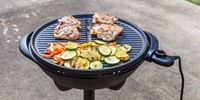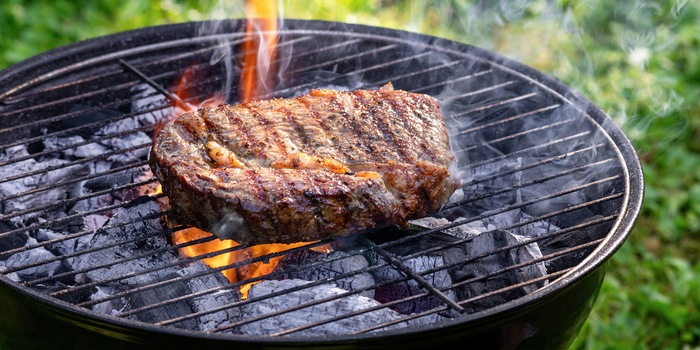
News + Trends
Barbecues under power: K-Tipp tests electric barbecues
by Patrick Vogt

No charcoal completely fails the Kassensturz and K-Tipp tests. But there are still differences. This is also reflected in the judgements, which range from "very good" to "sufficient".
I'm not a barbecue aficionado, but rather a barbecue opportunist or pragmatist. After our gas barbecue gave up the ghost, my father-in-law provided a replacement and gave us a charcoal barbecue. I've been barbecuing with coal ever since. I probably wouldn't have a problem if it was an electric barbecue either. They're supposed to be better than they already are:
However, I've never given much thought to the charcoal for our barbecue. Sometimes I buy it here, sometimes there - wherever it's convenient when I'm shopping. I have definitely noticed differences, even if the barbecue still turns out well in the end. Kassensturz and K-Tipp have now taken a closer look at the differences between the various barbecue coals.
The PZT test laboratory in Wilhelmshaven, northern Germany, fired up the barbecue for the test and made ten of the best-selling barbecue coals from Swiss retailers glow. The most important criteria:
The charcoals from Torero and Weber passed the test with flying colours. Both received a 5.5 according to the Swiss grading system and the rating «very good». They combine high heat with good temperature stability in the best way, as Kassensturz writes. The experts in the laboratory only criticise the fact that the sparks spray a little when lighting.
Good for you: Although Kassensturz and K-Tipp did not shop at Galaxus, you can also get the two test winners from us.
Barbecues should also be a success with the majority of the products tested. Six barbecue coals are «good» with scores between 5.4 and 4.9. Some of them do not quite reach the maximum heat of the two test winners, others are not very temperature-stable.
You can buy the «good» coals at Landi, Obi or Aldi, among others. Our range stops here. However, I can offer you an alternative to the tested product from Lübzer («quality charcoal»).
The barbecue charcoals from Denner and Migros are a little less favourable. Both of them bring up the rear in the test, but with a 4.1 each they are still «sufficient». The laboratory measured the temperature of the Denner charcoal at just around 150 degrees after one hour. This is at least 40 degrees less than the other test products, writes K-Tipp. To be honest, I rarely barbecue for longer than an hour. But yes, I realise that 150 degrees is not enough for barbecuing.
The charcoal from Giardino never really seems to get up to speed. It reached a maximum of 220 degrees in the practical test. This temperature may be enough for fish, vegetables or sausages, but not for searing your steak.
I doubt that I will be more selective about the charcoal for our barbecue in future because of the test by K-Tipp (paywall) and Kassensturz. As long as it fits, it's fine. But maybe I'll try some from LotusGrill and Weber. They are at the top of the best-selling barbecue coals in the range and are represented several times over. And you should know.
My colleague and Galaxus culinary expert Simon advised me to try Binchotan, Japanese charcoal. He told me emphatically that it was a barbecue game changer. Maybe so. But I simply don't have ... the charcoal.
What's your favourite charcoal to barbecue with? Do you have an insider tip for the Community and me? Then hit the keys!
I'm a full-blooded dad and husband, part-time nerd and chicken farmer, cat tamer and animal lover. I would like to know everything and yet I know nothing. I know even less, but I learn something new every day. What I am good at is dealing with words, spoken and written. And I get to prove that here.
From the latest iPhone to the return of 80s fashion. The editorial team will help you make sense of it all.
Show all